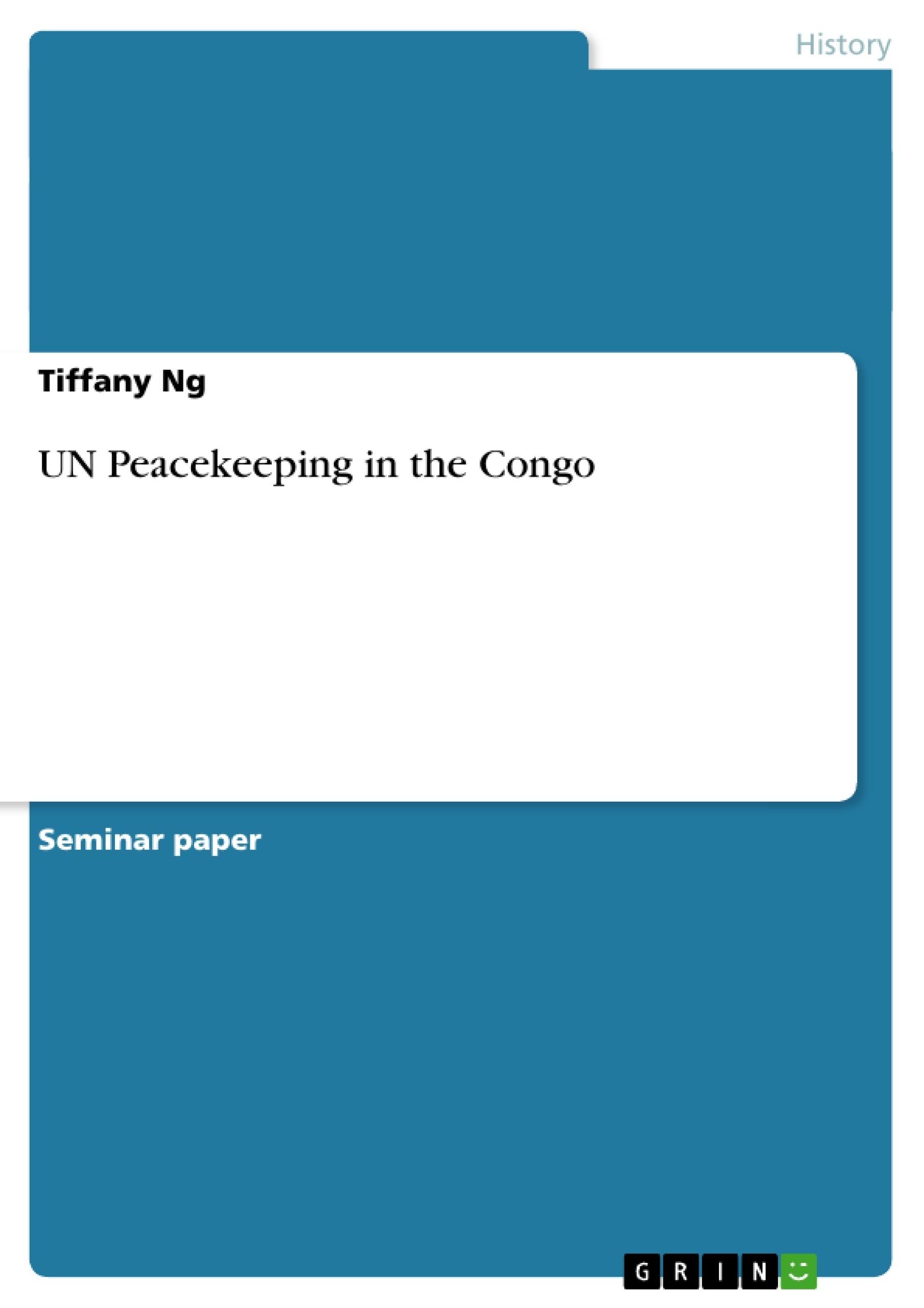From the power vacuum in the wake of World War II stepped two new superpowers and a new world order of bipolarity. The war destroyed Europe, once a force on the international stage. The United States and the Soviet Union were left to compete against each other in all forms and arenas for sole dominance. Their decades-long struggle was nowhere more apparent than in the United Nations (UN). This international organization, designed to promote peace and provide a forum for state cooperation, became anything but, as the two superpowers vied in an all out struggle of power politics until the end of the Cold War. A prime example, and perhaps, as Dag Hammarskjöld, the UN Secretary-General from 1953 to 1961, argued, the most important UN peacekeeping operation of the Cold War was the UN intervention in the Congo, Organisation des Nations Unies au Congo (ONUC), that began in 1960. The Congolese crisis demonstrated that the Cold War cleavage was powerful enough to penetrate even the very international organization created to eliminate the influence of individual state interests; the clear East-West divide not only further escalated the internal Congolese conflict but also further strained US and Soviet relations in all aspects of the UN.
Inhaltsverzeichnis (Table of Contents)
- Introduction
- Crisis in the Congo
- Founding of the UN
- UN Security Council & Secretariat
- UN in the Congo
- The United States' Unilateral Action in the Congo
- Cold War Implications on the Security Council
- Conclusion
Zielsetzung und Themenschwerpunkte (Objectives and Key Themes)
This text examines the role of the United Nations (UN) in the Congolese crisis of 1960. The main objective is to analyze how the Cold War rivalry between the US and the USSR affected the UN's peacekeeping operation in the Congo. This analysis seeks to demonstrate how the Cold War significantly impacted the UN's ability to resolve the conflict.
- The Cold War and the UN
- The Congolese Crisis and its Roots
- The Impact of the Cold War on the UN's Peacekeeping Operation
- The United States' Involvement in the Congo
- The Role of the Soviet Union in the Conflict
Zusammenfassung der Kapitel (Chapter Summaries)
- The introductory chapter discusses the emergence of the Cold War and the United Nations as a forum for international cooperation, highlighting how the two superpowers' struggle for dominance impacted the organization. The chapter argues that the UN intervention in the Congo, also known as ONUC, represents a significant example of the Cold War's impact on the UN's operations.
- The second chapter delves into the Congolese crisis, outlining the complexities of the newly independent state and its internal conflicts. It describes the events leading to the crisis, including the Belgian withdrawal, the uprising within the national army, and the secession of the Katanga region. The chapter also examines the role of the US and the UN in the early stages of the conflict.
Schlüsselwörter (Keywords)
Key terms and concepts that define this work include the Cold War, United Nations (UN), peacekeeping operations, Congo, the Congolese crisis, the United States, the Soviet Union, the UN Security Council, and the UN Secretariat. This text focuses on the interplay of these elements and their impact on the Congolese crisis.
- Quote paper
- Tiffany Ng (Author), 2007, UN Peacekeeping in the Congo, Munich, GRIN Verlag, https://www.grin.com/document/144529




